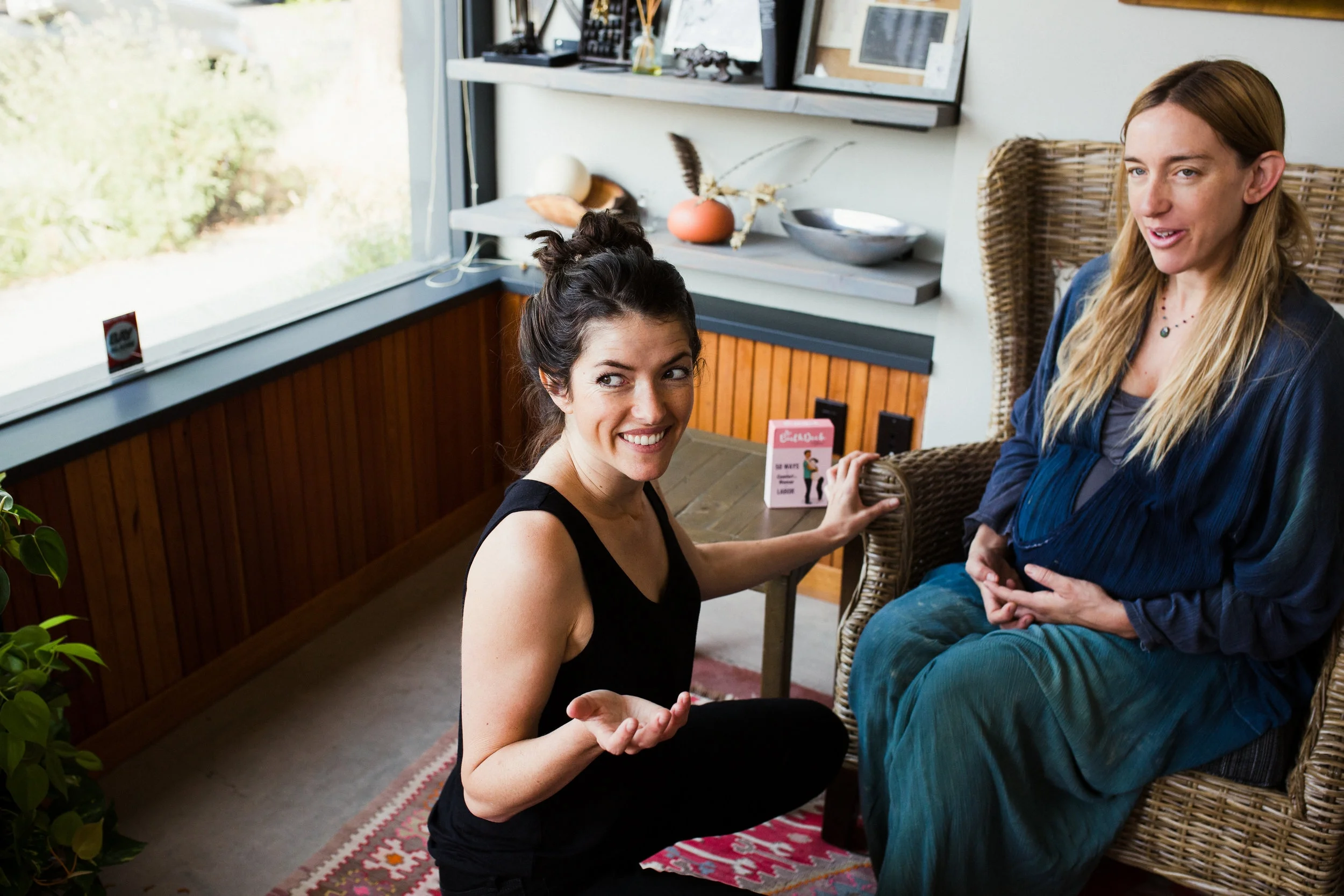Sexuality in a pregnant relationship is totally the other side of the coin from being in love. This stuff is really important to talk about because many people who are newly pregnant are also newly in love. Sometimes they are already at a very evolved and mature relationship, but often it’s the beginning and a romantic sense of one another predominates. They’re making love all the time and exploring sexuality together and relating powerfully to one another this way. For some newer relationships, it’s the opposite, maybe they’re newly discovering each other and they’re shy and they’re not showing their bodies entirely yet. Either way, pregnancy will change the way sexuality is experienced for both partners.
Be Prepared
Couples benefit from being prepared for the ebbs and flows in their pregnancy, and the shyness that the mother might start to feel with her changing body. I recently spoke with a couple entering this phase. They fell quickly in love, then suddenly she’s pregnant, and her body is changing very, very quickly. Almost immediately, she’s very shy even though their sexual connection is amazing, but now she wants the lights off, for instance. It’s very hard in our culture to not feel fat, but instead to embrace the curves and softness, so I’m trying to help her see the beauty of the softness and the changes of the body in this super ultra-feminine state that it is.
Often the partner is totally into the newness of her pregnant body, but women can actually project on themselves that it’s not beautiful. Don’t get me wrong, many women also feel quite sexy, even in their first trimester of ups and downs physically. In the second trimester, the body feels more feminine: breasts plump and a little round belly pops out. So, it’s an important place to be curious about rather then shy away from: going from being really in love and really confident in the relationship because the sex is good, to accepting the physical and emotional changes that have come. Those are often big shocks to a relationship and this is where intimacy really potentially begins.
I feel that one of the most important things I do for couples is prepare them for this surprise, because they can so easily feel estranged from one another if they aren’t warned. Suddenly, the pregnant woman’s like, “My god, I’m crying all the time!” or “I feel really insecure.” or “I don’t even know who I am anymore, and I don’t even want to look in the mirror, and does he still think I’m beautiful; am I sexy??”
The Murky Time
Up until 16 weeks, you don’t really look pregnant, you just look softer and a little pudgy, and no one really knows what to say to you because they’re not sure that you’re pregnant. That first trimester is the most sexually and emotionally challenging period for most couples. After about 20 weeks, things can really improve sexually, because you get over the physiological hurdle of the first trimester. There are no certainties, but normally the first trimester’s emotional and physical symptoms last until about 12 - 18 weeks. Women can feel pretty funky until then.
Emotionally, a woman becomes much more internal. She slows way down due to the pregnancy hormones, she may be nauseas, and exhausted. All she can really think about is the reality that she is pregnant. She’s seeing her life changing, she’s becoming more vulnerable and more dependent on her partner, instead of this rich sexual experience they may have connected through previously. Her body image is changing and it can really rapidly change.
A woman’s changing body image can be very difficult. If that’s not enough, her hormones cause physiological changes in those first weeks, and the things she used to find sexually arousing will often be a turn off: her nipples can be super tender, her vagina is swelling and in a constant arousal state which can be hyper-sensitive, actually making touch uncomfortable. She may also find that her vagina looks different and she may not feel comfortable with this.
Remember, the first 12 week period can be tough and quite shocking. The depth of complex emotions, even when the pregnancy has been planned can be surprising! Life can be put at a standstill due to hormones and nausea. This uncomfortable experience usually lasts longer than the first trimester and it can be quite disappointing when you’re still sick and you’ve passed 12 weeks. So, of course this is all a shock on the relationship! You’re partner is like, “Well, I’ve never seen you like this!” and you’re exhausted or tired or crying; it’s really difficult for both partners. Some women don’t have these symptoms, and feel great all along, but that’s not typical.
I believe this is nature’s way of helping us to slow down in this modern and pretty crazy world that’s going very very very fast, especially with technology that makes everything even faster, and then there is Googling! Helpful, yes, but it can really put a lot of fear into pregnancy, too.
The first trimester requires you to put the brakes on, so you can feel yourself as just being, slow way down, appreciating everything moment to moment. Sometimes you aren’t able to deal with life as you did before: making schedules, being strong, or super social, and “having it all together”. The state of pregnancy is a non-linear world!
It’s nature’s way of helping a woman to rest and go within, which is where the baby is, it helps her connect with the baby. The first trimester hormones reset the nervous system, and the way that we settle into the pregnancy. So that’s a positive to all of those murky feelings.
These primordial feelings can feel dreamy, and sometimes a little scary and unknown. The partner usually doesn’t get it, because he or she isn’t pregnant and can’t possibly understand it; that’s really hard on a couple in those first weeks. Understanding that this is a normal and helpful process in securing the pregnancy can alleviate some of the confusion or judgment between partners.
The second trimester usually, not always, but usually starts a shift into a beautiful space. Around 18-20 weeks, a woman often starts to feel better, more like herself. It’s very important that mama has been taking great care of herself, so that she can come back into her body and move out of the murky, defeated place.
Health and wellbeing are extremely important for sexuality, for coming back into your body, and for getting a hold of the pregnancy and enjoying it. With good eating, resting, slowing down in the world, and having time for yourself, sexuality can be amazing, especially when the baby bump finally comes out. If your nausea is gone, this new evolution can be exciting, and sexy.
Pregnant Femininity
There are many ways of being pregnant. Many many women feel very sexy when they are pregnant, but there is absolutely no judgment if you do not. If you don’t feel well, it can be extremely difficult to enjoy your sexuality. For some, prenatal sexuality can feel really spicy and almost even tribal: here is a couple making a family, whether they’re married or not, they’re bonded and connected like never before. They’re bringing in this life; it’s very romantic and it’s hot, really. It’s a beautiful time to see your sexuality as a woman being ultra feminine. If you can notice it, embrace it, and savor it, there couldn’t be a more feminine time which empowers you forever.
The feminine potency of pregnancy is so seldom discussed, and that’s really unfortunate. It’s the crystallized power of feminine energy. We have this uterus that is finally doing what it was born to do, and the power of that feeling inside a woman, to hold a creative act of life-force inside her body that is coming from love… that’s very sexy. Wear beautiful clothes, feel it, enjoy the silhouette of your body. I love how many beautiful clothing lines exist today to show your shape. Indulge in it!
Sexual Satisfaction
This is a really important time for old love, new love, whatever love, to embrace the changes. There are a multitude of complex feelings, as we discussed, and physically there are many body changes: the breasts can be very sensitive, they plump up and press out, which can be a lovely feeling, or an uncomfortable one. You are really budding everywhere.
You may need to work around certain areas of the body, and give more attention to others; your partner really has to explore. Your blood plasma has doubled, so everything is fuller, fleshier, a little swollen. Even our lips plump up on our face and our vagina. This can be more sexually arousing, but it can also be uncomfortable. In order to accommodate the fleshier pregnant body, you may need more lubricant, or, none at all. Most women are really wet throughout pregnancy, really mucussy; don’t be alarmed. If sexual exploration is done with consciousness, it’s a fantastic time to reinvent everything, and relearn each other: “What do you like now? What does this feel like now?”
It’s an important time to take all of this newness and practice communication with curiosity and gentleness, especially if you’re a couple that tends to be shy. If you begin talking about these sensitive topics now, then you’ve begun something that’s going to be so important for the rest of your lives, for your whole relationship. It’s time to develop friendship, humor, affection, conversation and cuddling. Begin talking about things that are unknown, out of your control, and very raw. Don’t avoid being vulnerable and intimate, and learn to talk about it without judgment of self or other; it will always serve you.
Partners
Emotionally, partners are also shifting. They’re developing into caregivers and providers, even in a dual-income household. They tend to become more protective of the pregnant partner, wanting to spend more time with her. They want to get their lives together and often put a lot of pressure on themselves to do so.
Sexually, some men have difficulty having intercourse with a pregnant woman; mentally, some men can’t put their penis in a pregnant woman’s vagina. It’s like, “Woah! There’s a baby in there!?” They still want to be super affectionate and increasingly attached, but they simply cannot have sex with a pregnant woman, and that’s their truth. However, they can be affectionate and sensual without intercourse, like kissing and oral sex.
Sensuality should never go away, it’s probably way more important than sex. Not just affection, but sensuality; the eroticism of connecting to your partner that way, exploring in a surrendered space together. Just being turned on and having orgasms is so important for our nervous systems, for both the mother and the partner. It’s an irreplaceable space of wordlessness, connecting in hearts and bodies and breath. Its also really, really good for your body! The movements we make with sex are very hard to get anywhere else.
Make it Happen
So, let’s say the pregnant woman is growing and she doesn’t know what to wear, and she’s looking at herself, wondering what will make her feel good- and her partner comes up and gives her lots of kisses along her shoulders and neck and breasts, or playfully grabs her ass. She needs to feel that her partner is attracted to her, not like she’s just carrying their child. But, of course, this is only half of it; more than anything, she needs to feel attractive herself, not just to others.
How can you cultivate your own sexuality?
Take pictures. Really observe yourself and appreciate what’s changing instead of shying away from it. Wear beautiful clothes that make you feel like you’re showing your pregnancy instead of hiding it.
Take really really good care of yourself. Focus on your nutrition, your bathing rituals, the things you find pleasure in.
Surround yourself with the right support people. Talk about what’s going on with your body image, your hopes and your fears.
Choose positive healthcare providers. How do your healthcare providers look at you? Make sure they are reflecting back how healthy you are and how normal pregnancy is. This is especially emotionally important if you had IVF. Be sure your provider includes your partner in conversations around the pregnancy, if that’s what you would like. It’s very sexy to a woman and to her partner when the partner is included in her prenatal care, it’s bonding.
Seek meaning in your experience. There are many ways to access the spiritual and emotional side of the prenatal experience. In addition to your primary medical care, make sure you are getting complementary care that reflects the health and vitality of pregnancy. This can come in many forms like yoga, massage therapy or adjunct support like a doula or a prenatal guide.
It’s really important to me, as a midwife, to help my families keep connecting and exploring in these unknown spaces, not just being functional, but enjoying, having pleasure with one another. We cannot let go of all of ourselves, just to become a mother and a father. We are sexual human beings, and we are brilliant human beings, we are creative human beings; we are so interesting. We need to keep reflecting the magic and the attraction back to one another.
MEET Leopi sanderson-edmunds
Leopi has been a licensed home-birth midwife since 1985, supervising and caring for over 1300 families. In addition to her midwifery practice, she offers care for prenatal and non-natal clients through orthobionomy, a slow and beautiful form of bodywork focusing on bone and soft tissue alignment. Unique in her field, Leopi offers prenatal counseling for women and couples to reach a deeper experience of pregnancy, and birth, no matter where and with whom they are birthing. Leopi also has a BA in Art Therapy and creates phenomenal masterpieces of figure painting. Leopi can be reached via the web at Sanctuary Leopi.
0 Likes










